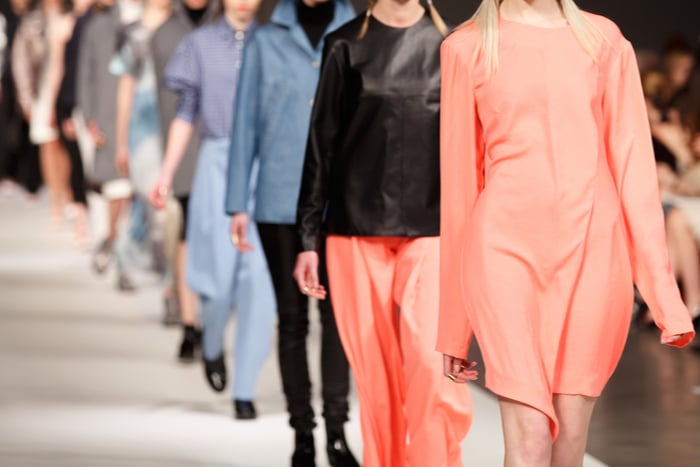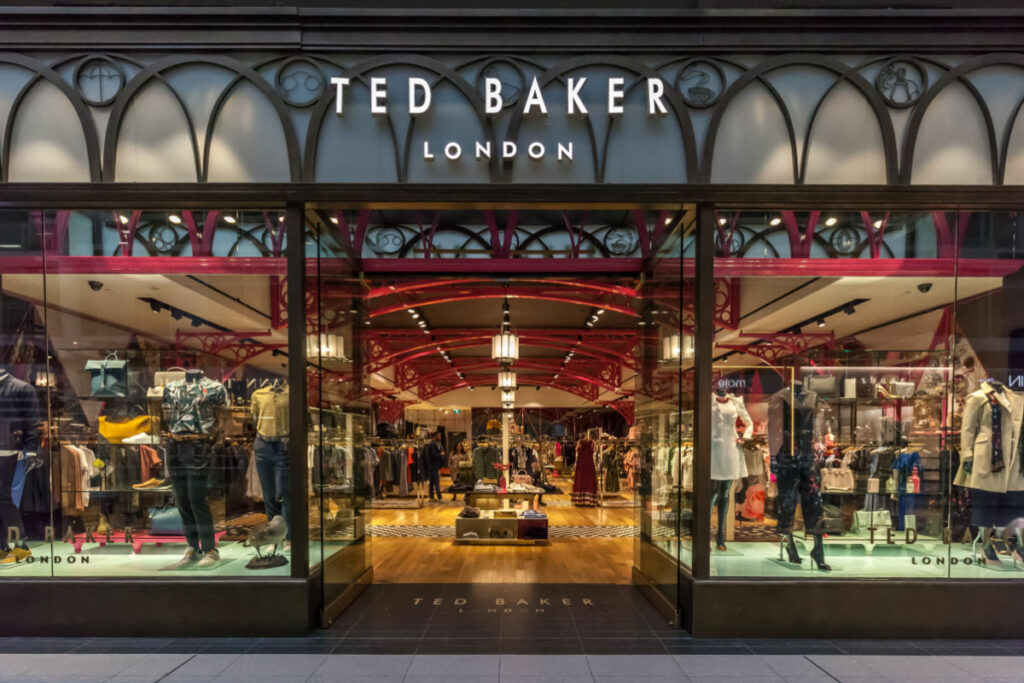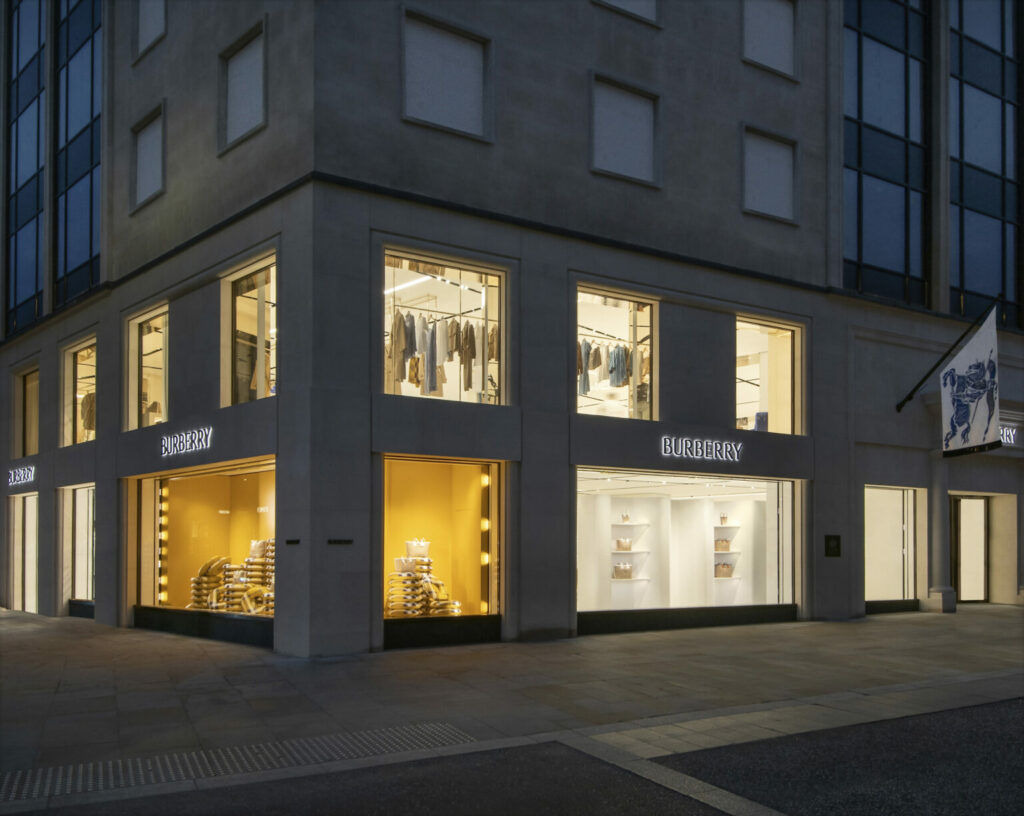It’s no secret that London Fashion Week is one of the biggest fashion events in the world – so much so it shares the global prestige of other “big four” fashion weeks held in New York, Paris and Milan.
From humble beginnings in October 1983, the bi-annual London Fashion Week (LFW) has traditionally been invite-only, where members of the press, the fashion industry and celebrities attend the exhibitions and runway shows.
However, for the first time this year, LFW allowed members of the public to purchase tickets to the event. It also became the first of the big four fashion weeks to do so.
READ MORE:
- Does London Fashion Week do well for retailers?
- Oxfam’s Second-hand September: The affect on fast fashion retailers & its viability
- Burberry launches eco-friendly range made from waste
This year’s LFW was also one of the first of the big four fashion weeks to embrace inclusivity and sustainability.
The Designer Exhibition was re-launched with a #PositiveFashion theme – the British Fashion Council’s (BFC) initiative designed to champion industry best practice led by its three Positive Fashion pillars: Sustainability, Equality & Diversity, Craftsmanship & Community.
Despite this, Extinction Rebellion protesters glued themselves to the doors of LFW’s headquarters during the week. There also staged a “die-in” to swarm the Victoria Beckham show, one of the week’s high-profile events, hoping to force the fashion industry to take the climate emergency seriously.
While the BFC has taken initiative for fashion to become more sustainable and inclusive, it raises the question as to whether it’s enough to encourage retailers to emulate – especially when it comes to sustainability.
“LFW’s urgency for change is not lost on fashion brands or retailers”
“LFW is influential in the sector, so adding to the enthusiastic trend for more inclusivity and supporting sustainable fashion is a progressive move forward,” Kim Winser, chief executive and founder of luxury womenswear retailer Winser London, told Retail Gazette.
Harry Morrison, managing director of strategy consultancy Accenture Strategy agreed.
“LFW is an influential platform that demonstrates the industry’s commitment to sustainability,” he said.
“Fashion brands and retailers can use that momentum to work together to drive action and positive change.”
With the rise in sustainable shopping options at an all-time high, retailers on the UK’s high streets are finding ways to be more eco-friendly, especially with Second-Hand September taking place to encourage thrift shopping.
READ MORE:
- Oxfam tackles fast-fashion in new campaign
- Gucci to go carbon neutral as “the planet has gone too far”, CEO says
- Inditex signs up to new sustainability initiative
However, from a business standpoint, sustainable shopping may not be favourable for high street fast fashion retailers.
Morrison said LFW’s “urgency for change is not lost on fashion brands or retailers”.
“Global fashion production has more than doubled in the past 15 years, with consumers buying 60 per cent more clothes than they did in 2002, but keeping them for only half the amount of time,” he said.
“While the shift to a circular fashion system has already begun, more needs to be done.
“Today, just one per cent of clothing is recycled – 73 per cent ends up in landfill.
“Sustainability is a top priority as brands and retailers look to reduce their environmental impact and drive circularity.”
Steve Cochrane, managing director of luxury retailer Psyche, said that despite LFW’s drive towards positive fashion, the event itself is not significant enough to bring those changes.
“Fashion Week alone is not enough to encourage retailers to become more sustainable, but it is a good and influential start,” he told Retail Gazette.
“However, its influence cannot be understated and being international can have a significant effect worldwide.
“Fashion Week alone is not enough to encourage retailers to become more sustainable”
“Fashion moves very quickly and time is running out to get the whole industry and especially fast fashion to change its manufacturing ethos.
“LFW raises the profile of designers and beautiful product, which has a positive effect on retail.
“Making the show public is a great move as it makes cutting edge designer fashion more accessible to many more people and will further raise awareness at a time when retail attendance of shows is waning.”
On the final day of LFW, industry insiders at the BFC’s #PositiveFashion panel discussion talked about how the fashion sector needed to take “immediate action” to be more sustainable.
Although they agreed that this season’s LFW had shown great progress towards “positive fashion”, the panel were unanimous that there is still a long way to go and that businesses must come together to help turn sustainability “from niche to norm”.
LFW’s willingness to have the general public involved illustrates the demand in activity between the retailer and consumer. It can be argued that LFW is further fuelling demand for sustainability, and combined with fashion retailers now able to engage directly with customers at the event, people can have a front row view of how that sustainability can be normalised.
Click here to sign up to Retail Gazette’s free daily email newsletter

















